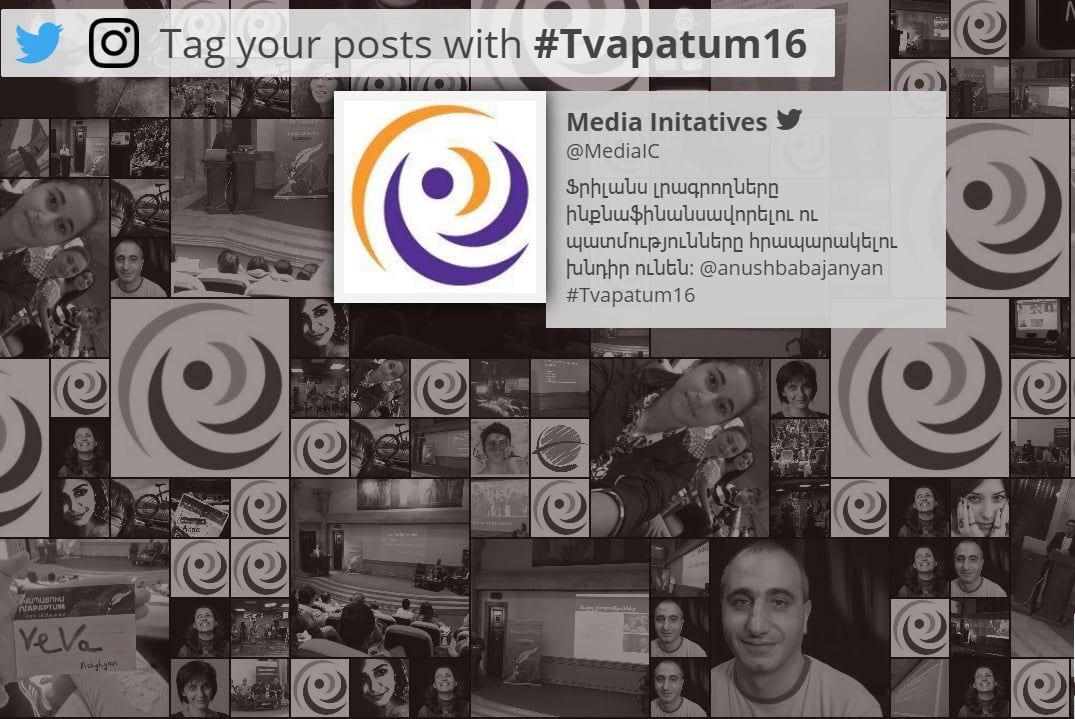
The focus of the Tvapatum (“Digistory”) media conference that took place in Yerevan from Sept. 23–24, 2016, was journalistic work, which is being transformed at the behest of new media and new technologies and simultaneously changing reality.
Held for the second time, Tvapatum this year highlighted two directions: investigative journalism and conflict coverage. These two branches of journalism have their distinctive features apart from serious journalism standards, since any investigation and collection of facts is guided by risks.
The charm and risks of investigations
OCCRP member, WikiLeaks collaborator, and correspondent for Novaya Gazeta‘s investigative department Dmitriy Velikovsky and Hetq (Investigative Journalists’ NGO) chief editor Edik Baghdasaryan spoke about processing information and the possible risks encountered during an investigation.
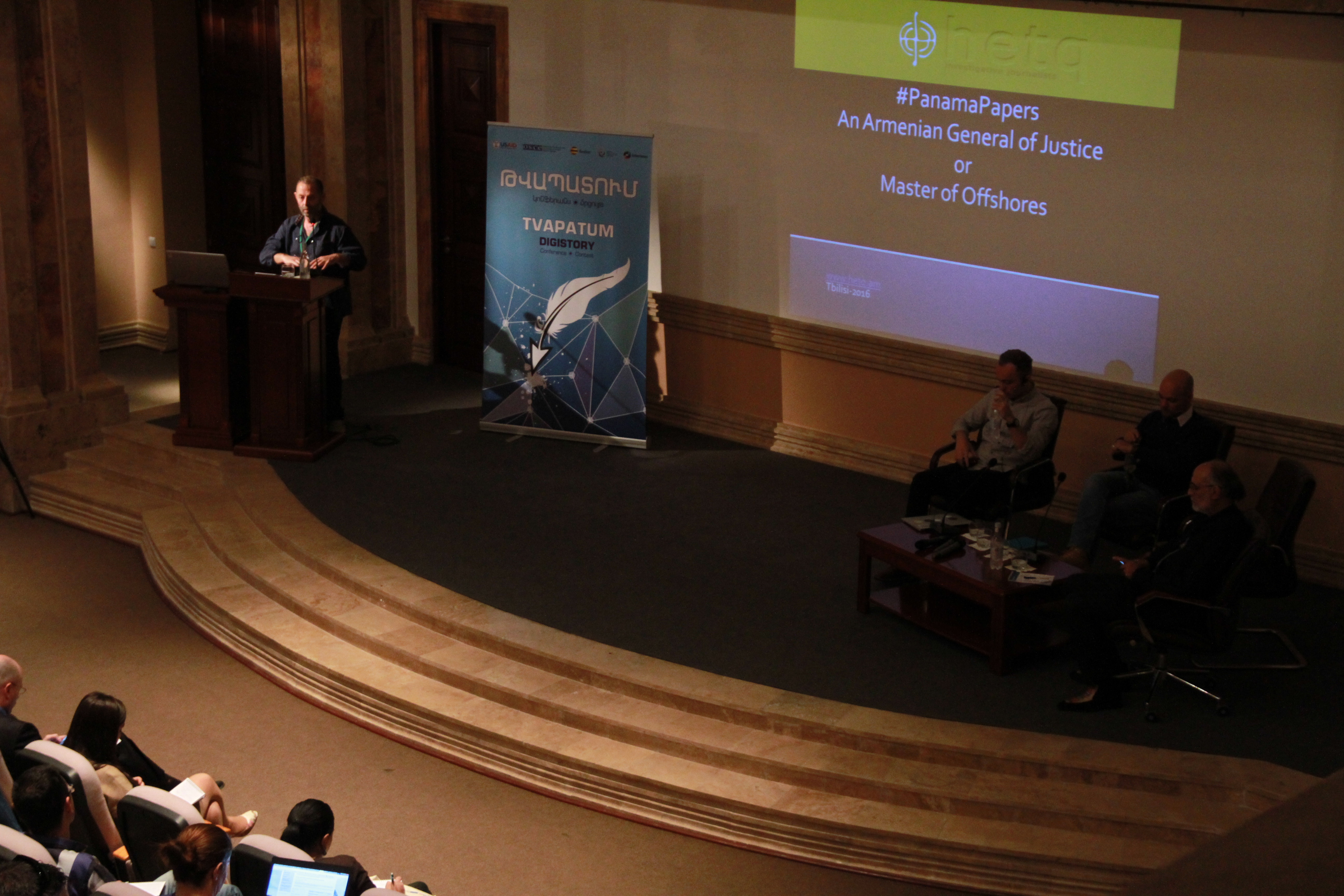
The international journalism investigation, which this year began with the leaking of the Panama Papers and the revelations of offshore corruption rings, united journalists from around the world, creating a network of cooperation. Velikovsky talked about painstakingly extracting remarkable information from open data, conversations with people, and social media accounts, and about his experience in ensuring safety and security (of both journalists and information).
“The planet is transparent, and remember, all of us one way or another leave a trace, which means that if desired, journalists can obtain the information they want,” he said.
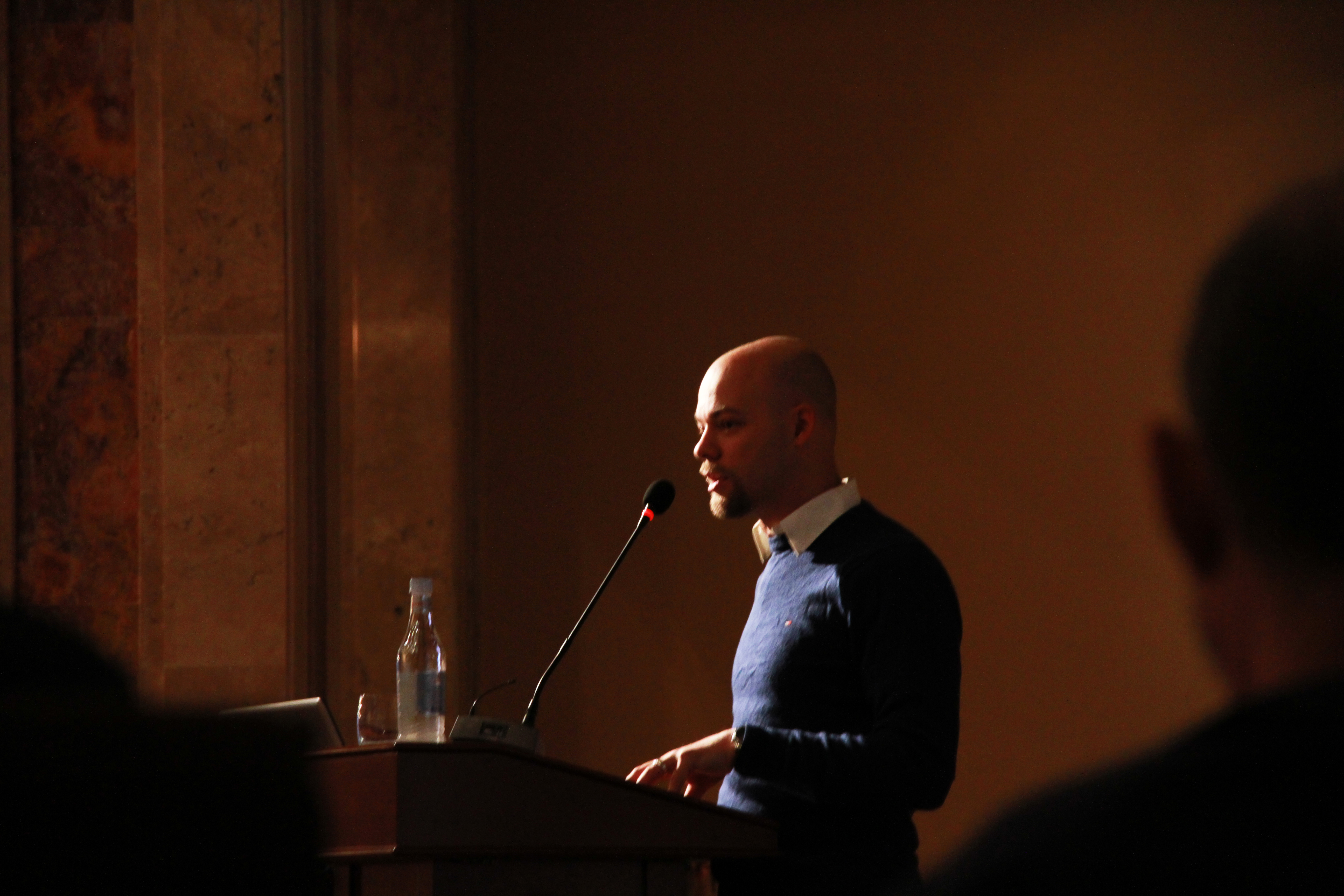
For safety, he advised to encrypt all correspondence. “In the digital world, it’s impossible to hide, especially if the state tries to follow you. But taking into account that not everyone in the state system is competent, there’s hope. In any case, the best way to stay safe is to completely clean your computer once every two weeks. Move your information, delete everything from the computer, and upload it again with new passwords. This is the most practical method,” said Velikovsky.
He suggested to journalists searching for topics for future investigations to dig into state data, court decisions, companies’ financial reports, and lists of property owners. “Sooner or later you’ll come across a coincidence, which will puzzle you. And then, begin to examine the common addresses, the links between people and companies. That is, try to weave your web. If you weave it well, you’ll create a good-quality journalism story.”
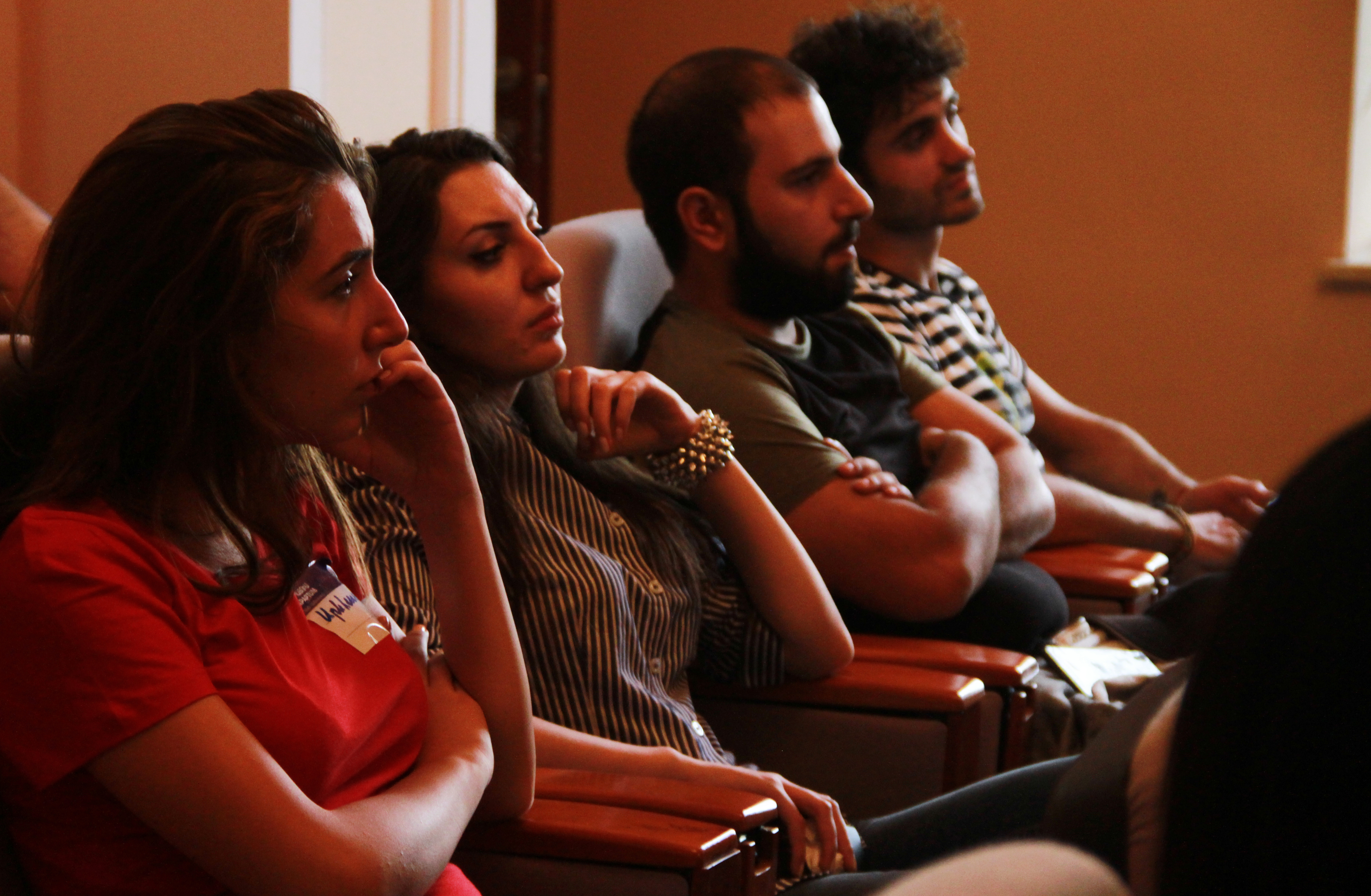
Baghdasaryan placed importance on the chain reaction of investigations. “If several media outlets are doing an investigation at the same time and continue publishing reports with new details, public pressure mounts, and change becomes more likely. In Armenia, unfortunately, few journalists engage in investigations. I always tell all the journalists: if you need advice, come to Hetq, we’ll help you. We’ll even pay the state registry fees for you. But, alas, there’s no response.”
At TV stations with large audiences, the traces of journalism investigations are nowhere to be found. Baghdasaryan said that concerning the news about Armenia’s Chief Compulsory Enforcement Officer, Mihran Poghosyan, who resigned as a result of the Panama Papers leaks, TV stations only reported his resignation. “They didn’t even tell the back story and didn’t explain why it happened. I think no one even ordered the channels not to talk about it, that it was more so self-censorship. They’re cautious or, perhaps, afraid.”
Baghdasaryan urged journalists to use those investigation topics that are already being circulated in the media and take them to their logical end, so that the topics don’t disappear and fade.
Journalists in conflict zones
The other branch of the Tvapatum media conference was the role and difficulties of journalists working in conflict and war zones.
British journalist, The Moscow Times Managing Editor Oliver Carroll described the difficulties of covering the Russian-Ukrainian war, while photojournalist and 4Plus member Anush Babajanyan shared her experience of working in Nagorno-Karabakh and disseminating her photos and photo stories.
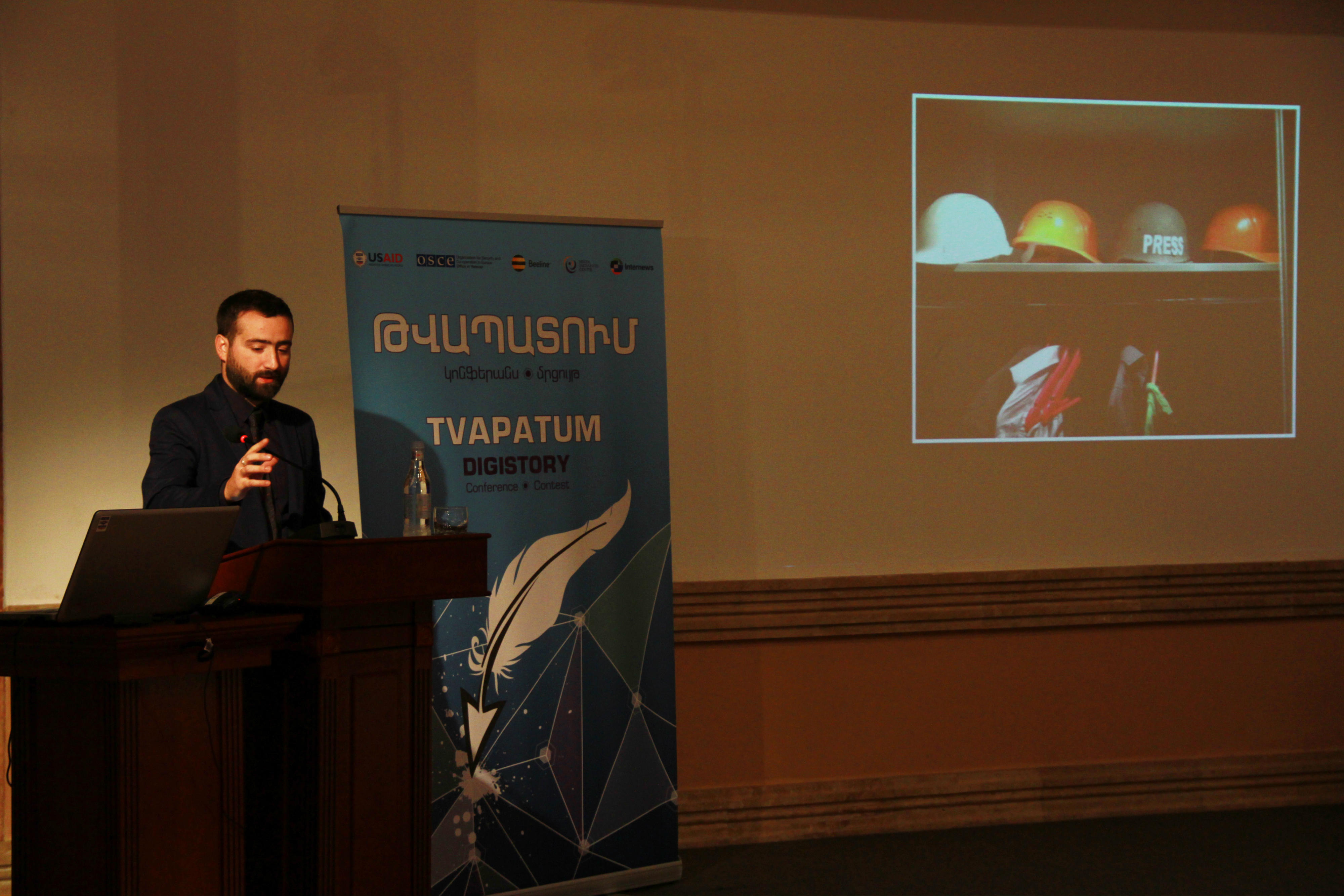
In addition, meduza.io investigative journalist Daniil Turovski spoke about her experience of covering the Islamic State and self-defense techniques for journalists working on the ground. “Every journalistic story leaves a trace when witnesses speak and a good main subject is found. This is particularly important in documentary materials,” she said.
War also becomes informative, and in that case, fact-checking and stopping the growth of fake online accounts become more important.
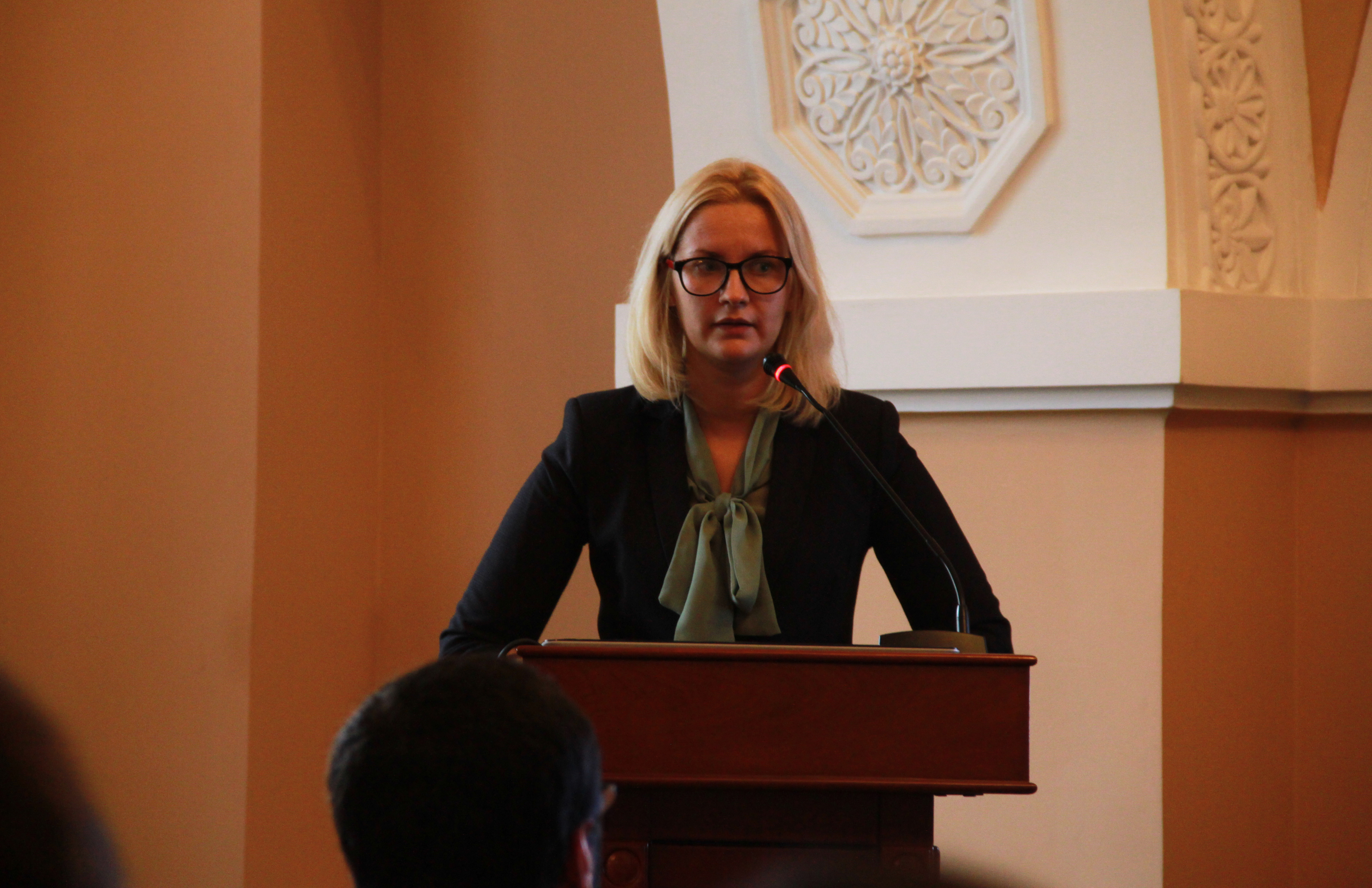
The Ukrainian website StopFake.org was a result of the Russian-Ukrainian war. The deputy editor of the website, Victoria Romanyuk, said fact-checking is already a separate genre of journalism.
“During the war, people didn’t understand what was truth and what was fiction. The Russian propaganda machine resorted to all the propaganda tools, beginning from gross absurdities and ending with covert manipulations. We understood that analyzing the news was necessary (and not only the facts, but also the delivery). The audience, with whom we maintain an interactive connection, helps us a lot in this task.”
Where we are going
Through the talks and workshops, Tvapatum media conference participants presented the contemporary experience of creating journalistic content, the media’s new formats and tools, and the overall media trends.
Multimedia projects producer Artyom Galustyan spoke about the skills in creating extensively prepared, costly, and diligently cultivated multimedia stories. The Russian producer remarked that multimedia projects are closer as a genre not so much to journalism but to documentary film, and their use enhances both the media outlet’s reputation and the interest in the topic.
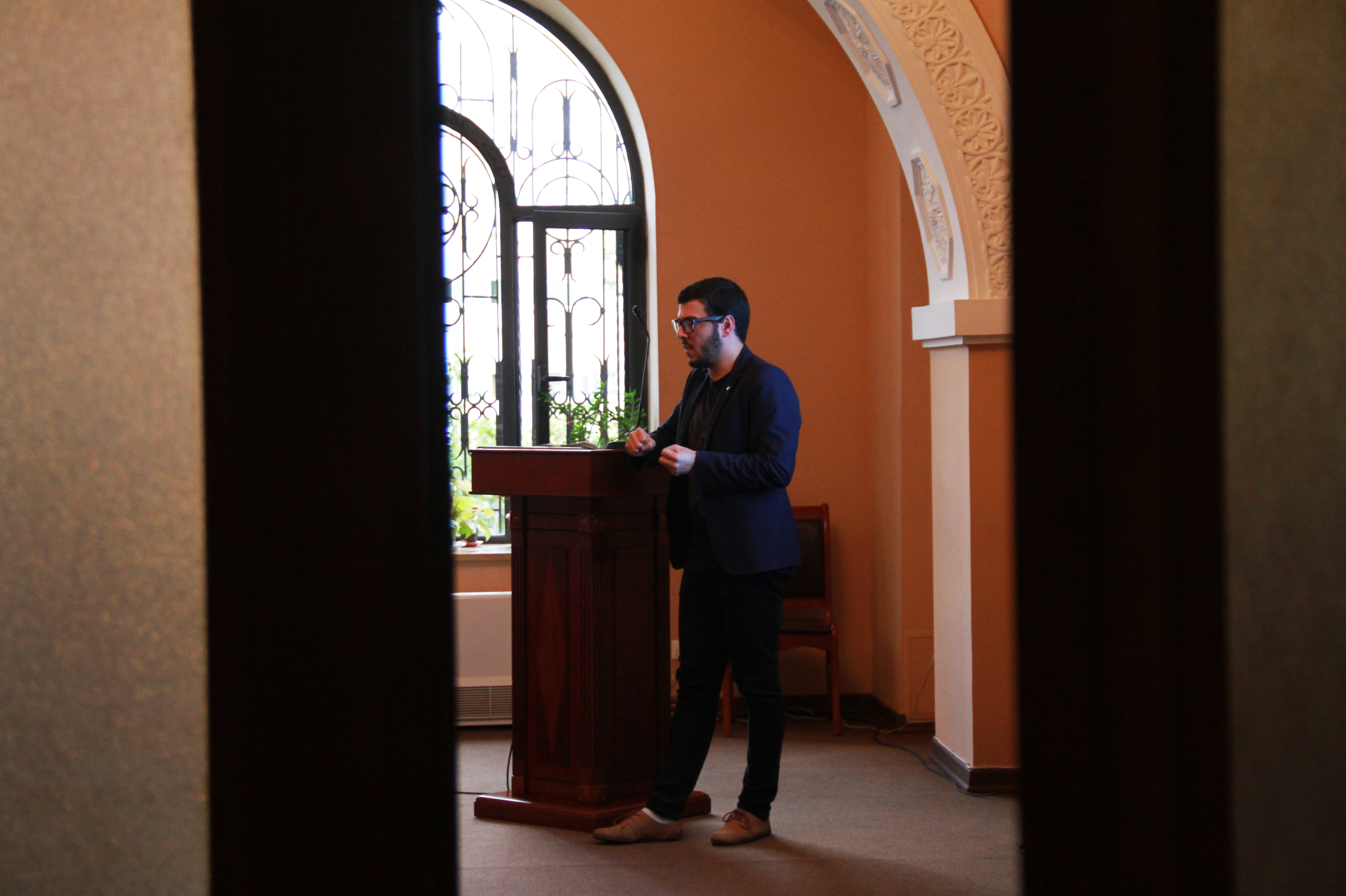
Media analyst, journalist, manager, and USC Annenberg Center on Communication Leadership and Policy researcher Vasiliy Gatov spoke about the media of the future and new trends.
“The growing number of media content has led to consumer fatigue. The average media consumer spends no more than three minutes to read a story a day. Just a few years ago, they consulted on average four sources of information, but now they glance over 62 sources,” he said.
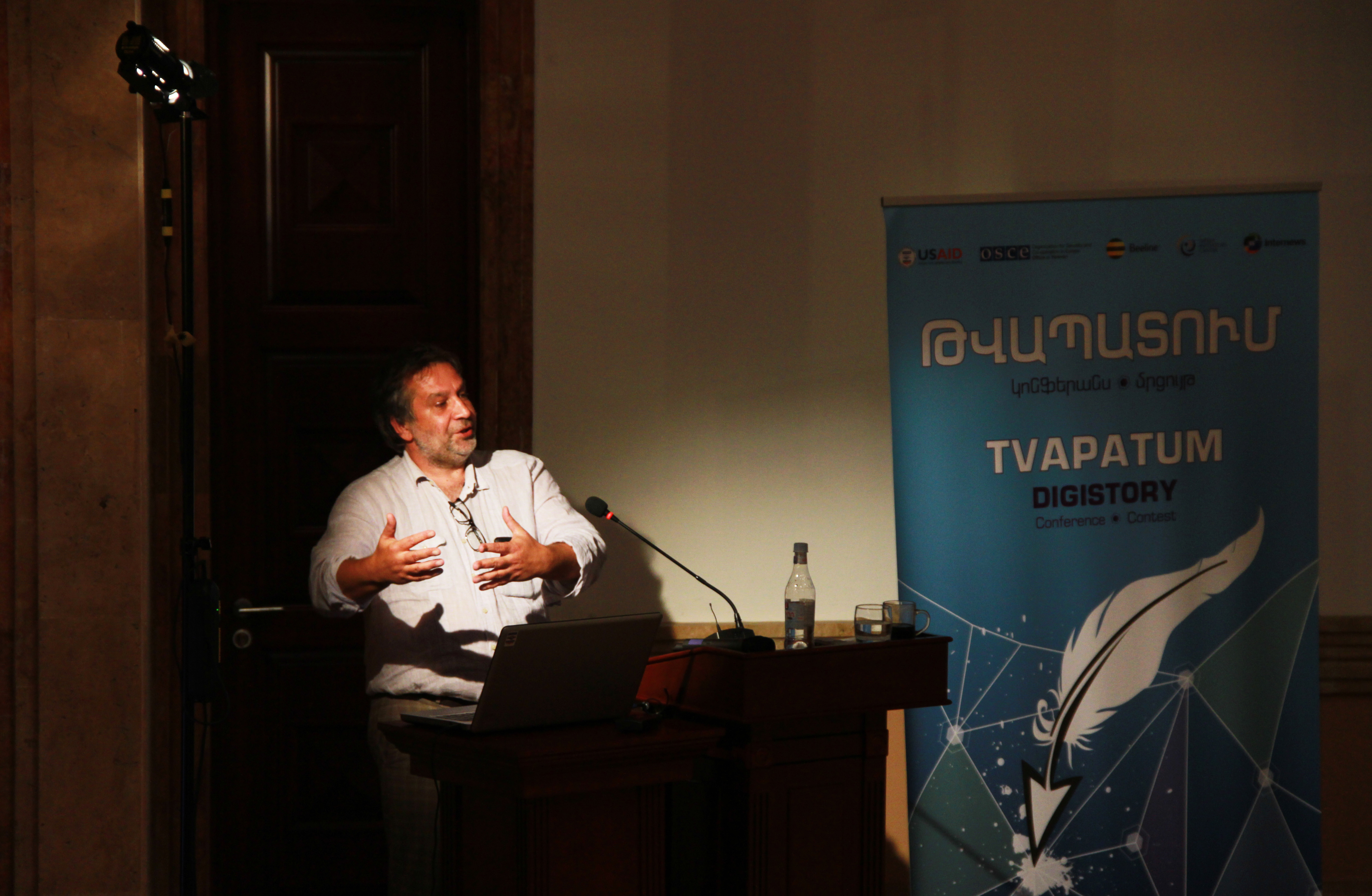
Futurologist Gatov predicted that in the near future the widespread access to and speed of information will lead to new requirements of the digital society. Humankind will push forward its rights to consume online content. “In 2018–2020, populated areas will be 100% covered by a high-speed connection, and the digital generation will become the majority, which will lead to new changes. For example, internet access will be enshrined in law.”
According to him, the digital age will also see new manifestations of censorship. “The internet not so much liberated us as enslaved as, making our behavior transparent. Which totalitarian states use very well, controlling the news agenda and imposing on us a strict value system.”
Nune Hakhverdyan
Photos by Sona Kocharyan


Add new comment
Comments by Media.am readers become public after moderation. We urge our readers not to leave anonymous comments. It’s always nice to know with whom one is speaking.
We do not publish comments that contain profanities, non-normative lexicon, personal attacks or threats. We do not publish comments that spread hate.